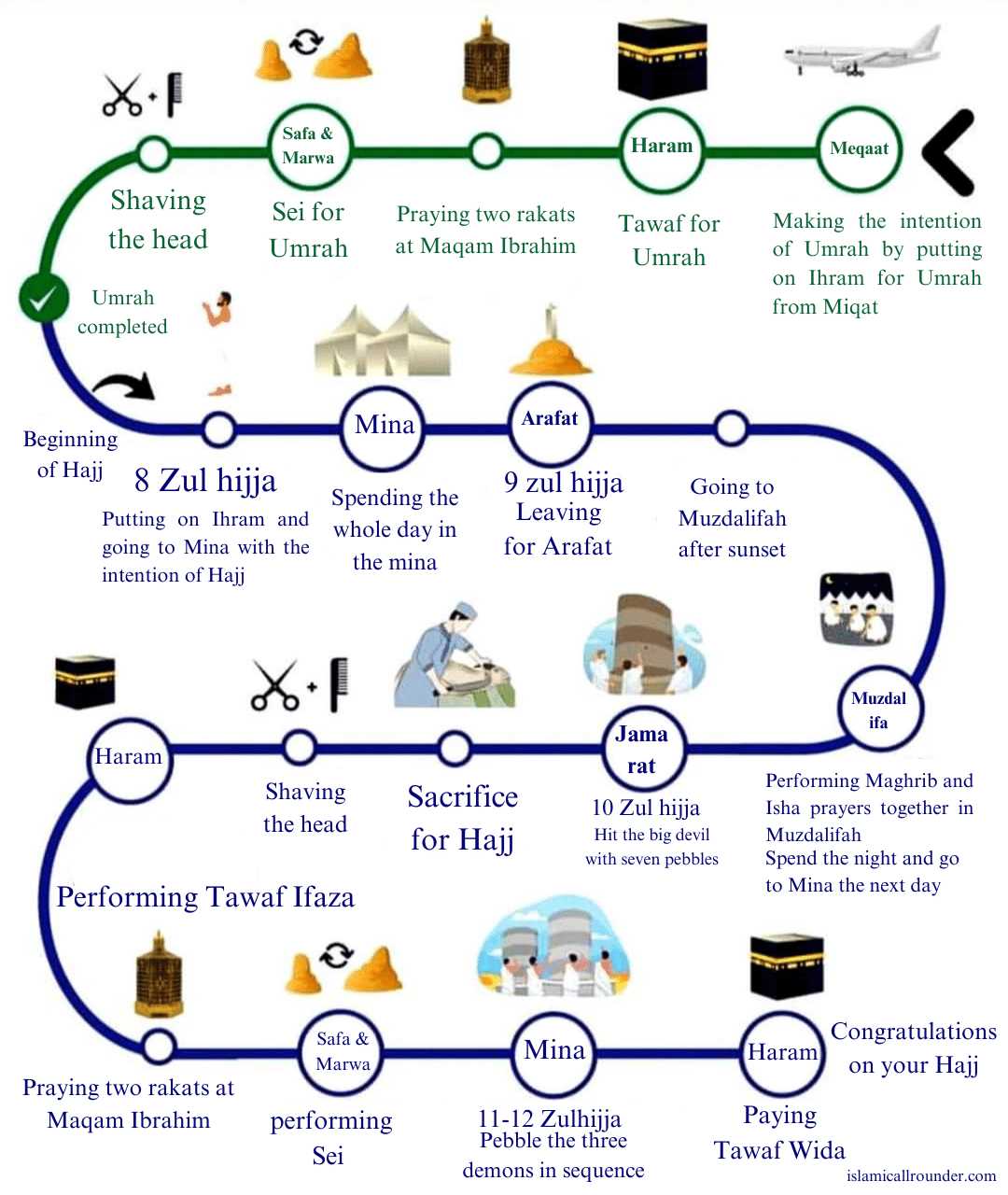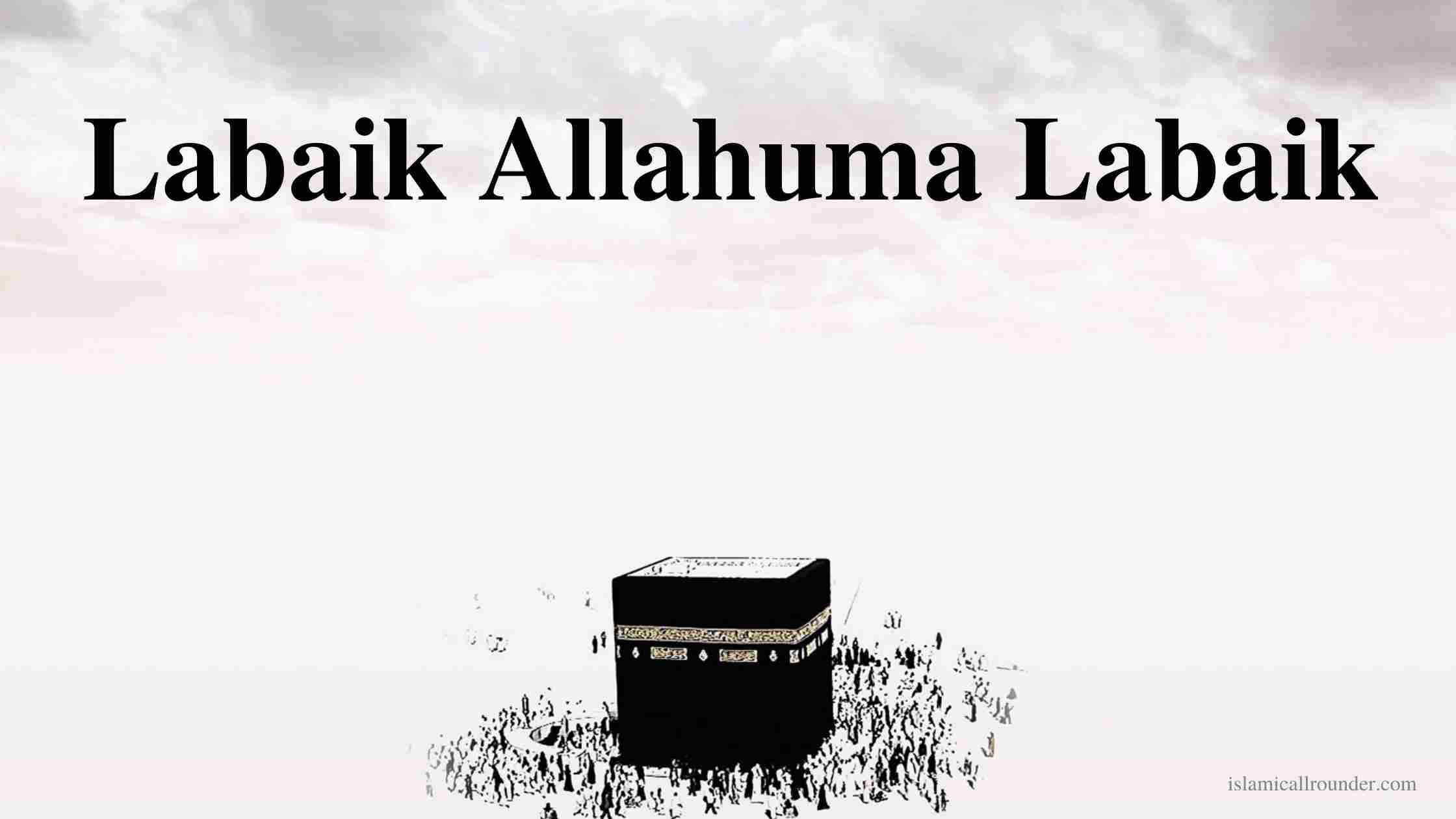labaik allahuma labaik Do you know what is Meaning labaik allah huma labaik ? If you have performed Hajj then you know for sure. If you have not performed Hajj then you will have heard these words on TV during Hajj days or you will have heard these words during Eid days. These words are called Talbiyah; they are recited especially during the days of Hajj.
When Hazrat Ibrahim (PBUH) finished the construction of the Ka’bah, Allah Almighty blessed him! Announce Hajj among the people, Hazrat Ibrahim (as) requested. O Allah, how far will my voice reach? Allah Almighty said! O Ibrahim, your duty is only to announce and it’s my job to deliver.
Hazrat Ibrahim (as) ascended Safa and Hazrat Ibrahim (peace be upon him) put his fingers in his ears. And said, O people! Beware, your Lord has built a house and commanded Now we discuss labbaik allahumma labbaik full dua.
Labaik Allahuma Labaik Meaning in English
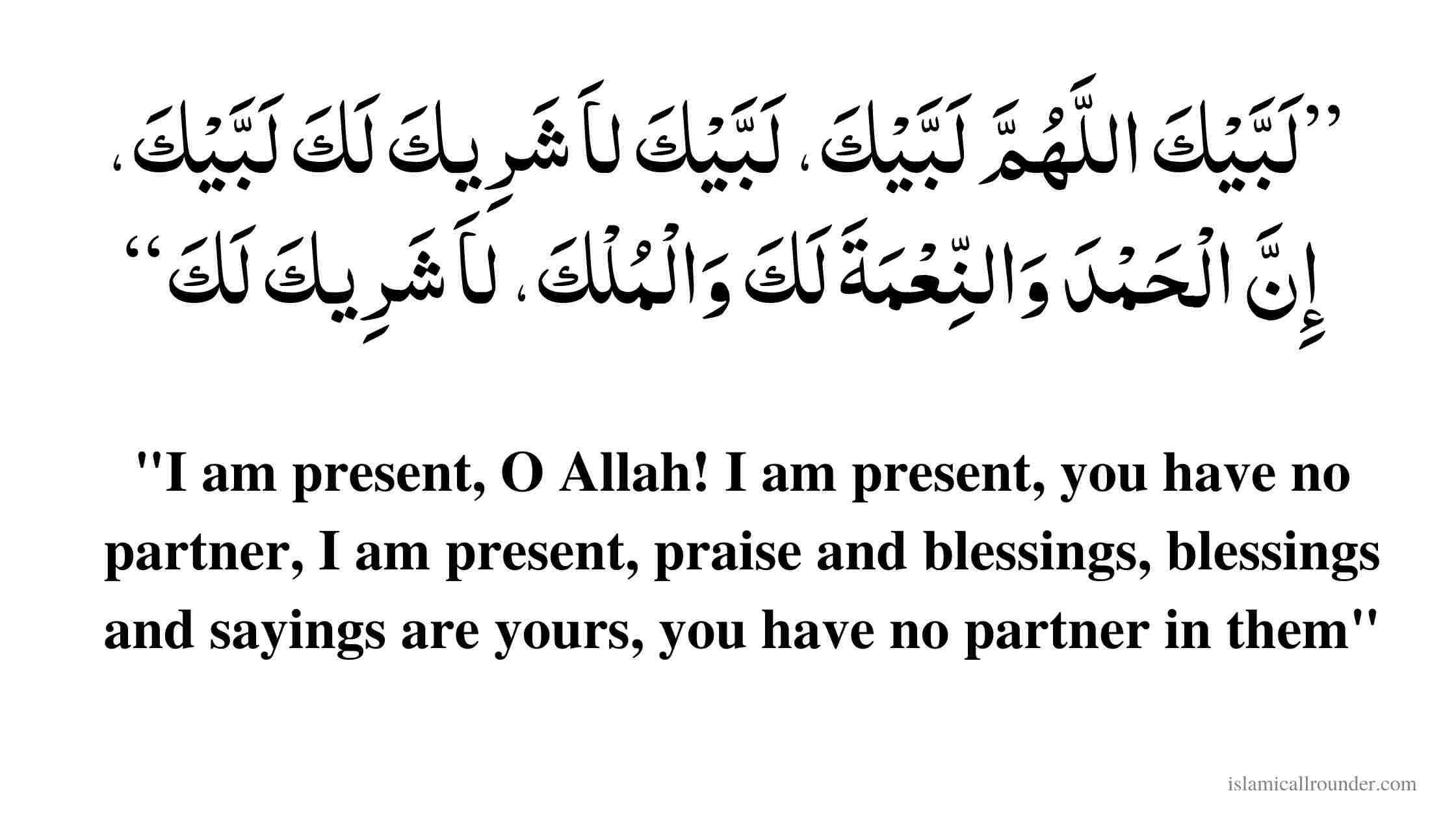
How to perform Hajj
Paradise for the pilgrim. Pilgrims are God’s guests and their prayers are accepted. These people embark on a new journey towards the pursuit of goodness, pledging to eradicate all forms of evil. If a person does not perform Hajj despite his ability in life, then not only is he deprived of the blessings of Allah, but the path of guidance is also blocked for him.
Abo Horaira Says that the Hazrat Muhammad (PBUH) was asked which deed is the most virtuous. The Hazrat Muhammad (PBUH) said: “Believe in Allah and His Messenger. “Asked: Then which one? He said, “Jihad in the way of Allah.” Asked what it was then. He said that Hajj is free from evil.
Hazrat Abu Huraira (RA) heard the Holy Prophet (PBUH) saying: Whoever performs Hajj for the sake of Allah in which there is no-nonsense and no sin is committed. He will return as if his mother had just given birth.
Those who do not perform Hajj despite their ability, Allah removes them from His bounty. It is narrated from Hazrat Abu Umama (RA) that the Holy Prophet (PBUH) said: If a person is not prevented from performing Hajj by any outward need or by some unjust king or preventable disease (ie severe disease) and he still does not perform Hajj and dies (without performing Hajj) Whether he dies as a Jew or as a Christian (Allah has no concern for him).
Types of Hajj
There are three types of Hajj depending on the method of payment:
- Ifraad: The method in which the ihram of Hajj is worn, the one who performs Hajj does not perform Umrah in it but he can only perform Hajj
- Qer’an: Ihram for Hajj and Umrah is tied together. After reaching Mecca, first Umrah is performed and then Hajj is performed in the same ihram.
- Tamattu ‘is the method of Hajj in which Hajj and’ Umrah are performed simultaneously in such a way that after performing ‘Umrah in Makah one can come out of the state of ihram and then enter ihram for Hajj on the 8th of Dhul-Hijjah with the intention of Hajj It is the easiest Hajj.
Duties and obligations of Hajj
The duties of Hajj are as follows:
- To enter ihram
- Waqof of Arafat
- Visiting Tawaf
To perform these three duties in the prescribed places and at the prescribed times. Seven things are obligatory for Hajj:
- Staying in Muzdalifah
- Pebble the stones
- Sacrifice if the intention is to perform Hajj Qer’an or Hajj Tamattu
- Shaving or trimming the hair of the head
- Tawaf Sa’i between Safa and Marwah
- Tawaf and supplication
- Completing seven rounds of Tawaf Ziarat
If any of these obligations are omitted, it is necessary to make a sacrifice
Hajj days and Parts of Hajj
The five days from 8 Dhul-Hijjah to 12 Dhul-Hijjah are called the days of Hajj. All the rites of Hajj have to be performed in those days. The details are as follows:
8 Dhu al-Hijjah: Departure for Mina

Pilgrims perform Fajr prayers in Makkah on 8th Dhul-Hijjah and leave for Mina as soon as the sun rises. There is an abundance of talbiyah labbaik allah huma labaik in travel. After reaching Mani, after performing Zuhr, ASR, Maghrib, and Isha prayers, they stay here for the night and also perform Fajr prayers on the 9th Dhul-Hijjah in Mina.
9 Dhul-Hijjah: Waqof Arafat
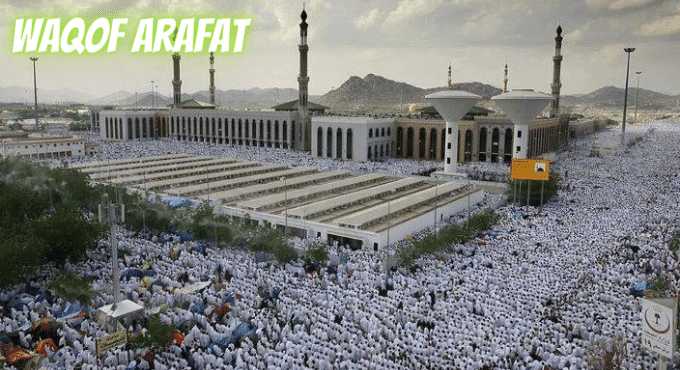
After performing the Fajr prayers in Mina, one leaves for Arafat at sunrise, and in Arafat, the Zuhr and Asr prayers are offered together at the time of Zuhr. This stay in Arafat Square is called Waqof Arafat which is the most important part of Hajj. If for any reason a person fails to reach here on the day or night of 9th Dhul-Hijjah, he will not be able to perform Hajj and there is no scope for his compensation.
On this day, at sunset, the pilgrims leave for Muzdalifah without offering Maghrib prayers. In Muzdalifah, the Maghrib and Isha prayers are offered at the time of Isha prayers. The night stays in Muzdalifah.
10 Dhul-Hijjah: Departure of Mina
It is obligatory to stop in Muzdalifah after the Fajr prayers. Later the pilgrims leave for Mina. Upon reaching Mina, the pilgrims will have to perform three duties respectively.
- Pebble the big devil.
- Sacrifice after finishing Rami.
- Shaving or cutting after sacrifice
After that, the ihram is opened and the clothes are put on, and all the restrictions of the ihram (except intimacy) are removed from the pilgrims.
Tawaf-e-Ziyarat & Sa’i
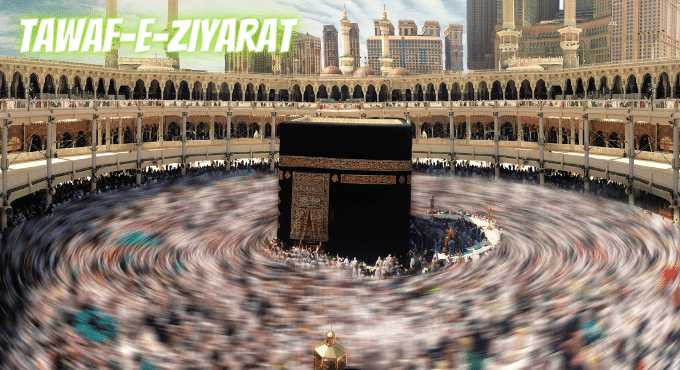
Pilgrims in Makkah after opening Ihram The fourth member performs Tawaf-e-Ziyarat. This is one of the duties of Hajj and is permissible till sunset on the 12th of Dhul-Hijjah. It is obligatory to try Safa and Marwah after Tawaf Ziarat
Mina Return
Staying in Mina for two nights and two days after Tawaf, Ziarat, and Sa’i is a definite Sunnah. It is forbidden to spend the night in Makkah or any other place. The eleventh, twelfth, and thirteenth of Dhul-Hijjah are called the days of Rami. In all these three dates, the three stones are thrown. The rummy time is until sunset. First on Jamra-e-Awli, then on Jamra-e-Wasti, and then on Jamra-e-Aqaba. Then return to Mecca.
Tawaf-e-widaa
This is the last obligation of Hajj which is obligatory only on those who are out of Meeqat When they start to leave Makkah, they should perform the last Tawaf After completing the rites of Hajj in Makkah, the lovers leave for Madinah to attend the court of the Holy Prophet (sws).
How to preform Hajj In Pictorial Form
